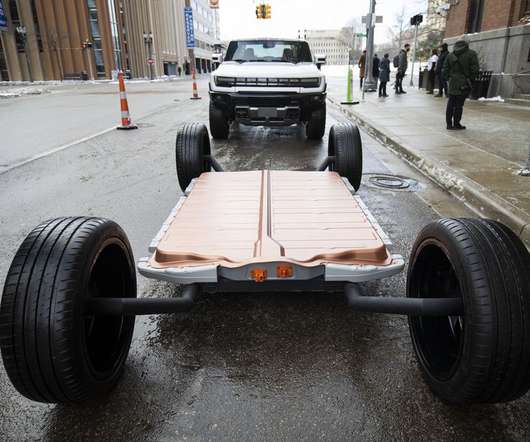DOE to award more than $27M to 12 plastics recycling R&D projects
Green Car Congress
OCTOBER 18, 2020
As part of DOE’s Plastics Innovation Challenge, these projects will also help improve existing recycling processes that break plastics into chemical building blocks, which can then be used to make new products. Skokie, IL) - Upscaling of Non-Recyclable Plastic Waste into CarbonSmart Monomers – DOE Funding: $1,890,001. LanzaTech, Inc.























Let's personalize your content